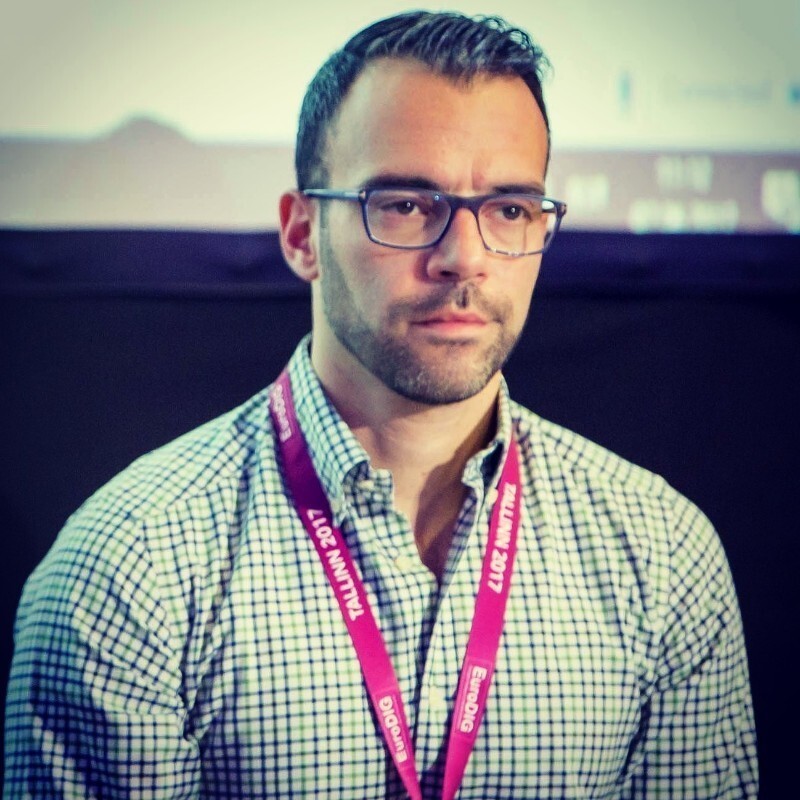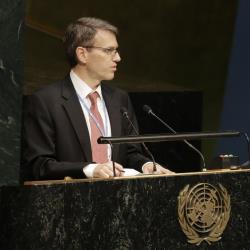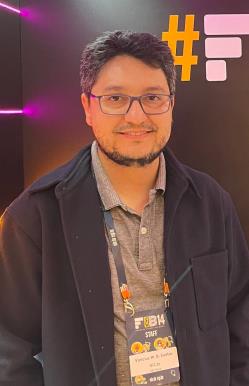Towards the WSIS+20 Review: Driving technical community engagement
Canadian Internet Registration Authority
Session 198
Over the past six months, the future of the internet—and its governance—has featured in multilateral and multistakeholder discussions around the world. From NETmundial+10 to the Global Digital Compact, these dialogues have increasingly seen engagement from members of the technical community. Many have expressed strong support for a strengthened multistakeholder model of internet governance, recognition of the critical role of the technical community in decision-making about the internet and support for existing structures like the Internet Governance Forum.
In the lead-up to the WSIS+20 Review, this interactive session will assemble leaders and engaged members of the internet’s technical community to discuss their engagement in related processes, share lessons learned and identify how we can work together to promote a strengthened and renewed commitment to multistakeholderism.
.jpg?maxwidth=250)
Konstantinos Komaitis is a Resident Senior Fellow for Global Governance and Democracy at the Atlantic Council’s Digital Forensics Research Lab. He spent ten years in active policy development and strategy as a senior director at the Internet Society, where he led a series of projects, including the Internet Assigned Numbers Authority transition. Before joining the Internet Society, he spent seven years as a senior lecturer at the University of Strathclyde in Glasgow where he was researching and teaching internet policy, with particular focus on internet governance, intellectual property, trade, and cybersecurity. He has worked for the New York Times and provided strategic advice to a variety of companies, governments and international organizations on internet governance and public-policy issues. He sits on the board of IP Justice, a San Francisco-based nongovernmental organization, and he also co-hosts the Internet of Humans podcast.

Jodi studied law at the University of Canterbury in New Zealand and completed a Masters in Intellectual Property law at the University of Houston in the US. She has worked as a lawyer in law firms and corporates in environmental and intellectual property law, and for the NZ government as an international trade negotiator and in digital economy policy. In 2020 she joined Ipurangi Aotearoa / InternetNZ, the manager of the .nz ccTLD and a not for profit with a mission to create an Internet that benefits all New Zealanders. She worked in the public policy team until taking up her current role as Internet Governance Lead in 2023.

Veni Markovski is the head of Government and Intergovernmental Organization Engagement for ICANN. Based in New York, he is the vice-president, responsible for the relations of ICANN with the United Nations, the UN Agencies, and the Permanent Missions to the United Nations.
In September 1990 he started his work on the Internet, as a system operator of the first Sofia-based bulletin-board system, part of FidoNet. In 1993 Markovski co-founded and for nine years was the CEO of bol.bg - the first commercial Internet service provider in Sofia, the capital of Bulgaria. The company was sold successfully in 2008 to an international investment fund. In 1995 he co-founded the Bulgarian Internet Society, a non-profit, of which he serves as President and chairman of the Board.
In March 2002 Markovski was appointed as Chairman of the Bulgarian President's IT Advisory Council, a position he held until the President stepped down from office at the end of his second term on January 22, 2012.
In 2005 he was invited to be the senior international projects adviser to the chairman of the governmental Agency for Information Technologies and communications, a position that he held until 2009. He was also adviser to the Bulgarian national cybersecurity coordinator from 2009 till 2013.
Since the beginning of his career, Veni Markovski has been involved in different international organizations and programs on different levels - as project manager, adviser, senior adviser, advocate for policy changes, mediator, board member, etc. He has served on the Boards of Computer Professionals for Social Responsibility, the global Internet Society, ICANN, among others. He was a member of two experts group to the European Commission – the High-Level Expert Group on Fake News and Online Disinformation and the Expert Group on Tackling Disinformation and Promoting Digital Literacy Through Education and Training.
Markovski has graduated the Law School of St. Kliment Ohridski Sofia University. He has published hundreds of articles in the mainstream and specialized media, and is the author of one book, “Caught in the Net”, published by Sofia University Press in 2018.

Sabrina is CIRA's Policy Program Manager, where she develops and advocates for policy positions in pursuit of a trusted internet. She holds a PhD in Media & Communications from Goldsmiths, University of London. Prior to CIRA, she held research fellowships at the University of Ottawa's Centre for Law, Technology & Society and McGill University's Centre for Media, Democracy & Technology.

Vinicius has been involved in digital issues for more than 15 years and currently serves as an expert Advisor to the Brazilian Internet Steering Committee – CGI.br, coordinating Internet Policy and Governance efforts. His activities include supporting CGI.br in specialized subjects and decision-making processes, as well as following several global governance tracks in the interest of the Committee. He holds a PhD in Science and Technology Policy from the University of Campinas, Unicamp, M.A. in Science and Culture Communication from the same university, and a B.A. in Social Communication from the Federal University of Vicosa.
-
 C1. The role of governments and all stakeholders in the promotion of ICTs for development
C1. The role of governments and all stakeholders in the promotion of ICTs for development
-
 C2. Information and communication infrastructure
C2. Information and communication infrastructure
-
 C3. Access to information and knowledge
C3. Access to information and knowledge
-
 C4. Capacity building
C4. Capacity building
-
 C5. Building confidence and security in use of ICTs
C5. Building confidence and security in use of ICTs
-
 C6. Enabling environment
C6. Enabling environment
-
 C11. International and regional cooperation
C11. International and regional cooperation
The internet’s technical community—those actors, groups and organizations that ensure the day-to-day technical functioning of the internet—plays a key part in advancing all the WSIS action lines.
This session will explore the importance of technical community participation in global internet governance on equal footing to other stakeholder groups, and how the multistakeholder approach contributes towards the advancement of key WSIS action lines.
-
 Goal 3: Ensure healthy lives and promote well-being for all
Goal 3: Ensure healthy lives and promote well-being for all
-
 Goal 4: Ensure inclusive and equitable quality education and promote lifelong learning opportunities for all
Goal 4: Ensure inclusive and equitable quality education and promote lifelong learning opportunities for all
-
 Goal 5: Achieve gender equality and empower all women and girls
Goal 5: Achieve gender equality and empower all women and girls
-
 Goal 8: Promote inclusive and sustainable economic growth, employment and decent work for all
Goal 8: Promote inclusive and sustainable economic growth, employment and decent work for all
-
 Goal 10: Reduce inequality within and among countries
Goal 10: Reduce inequality within and among countries
-
 Goal 16: Promote just, peaceful and inclusive societies
Goal 16: Promote just, peaceful and inclusive societies
-
 Goal 17: Revitalize the global partnership for sustainable development
Goal 17: Revitalize the global partnership for sustainable development
This session will explore the importance of technical community participation in global internet governance on equal footing to other stakeholder groups and how this multistakeholder approach contributes towards the advancement of all 17 United Nations Sustainable Development Goals.
https://www.cira.ca/en/policy-engagement/future-of-multistakeholderism/
https://x.com/ciranews?lang=en
https://www.linkedin.com/company/canadian-internet-registration-authority/